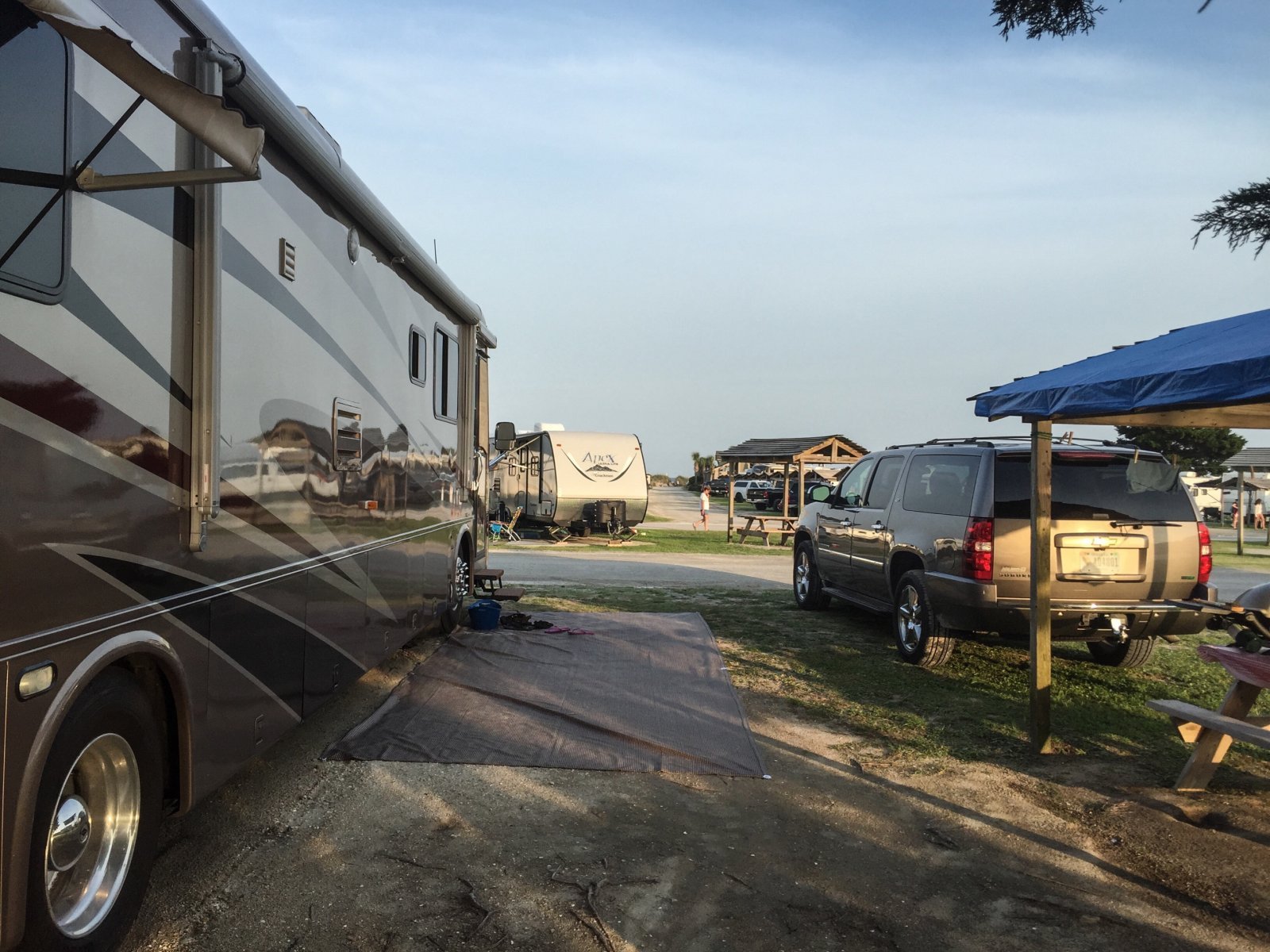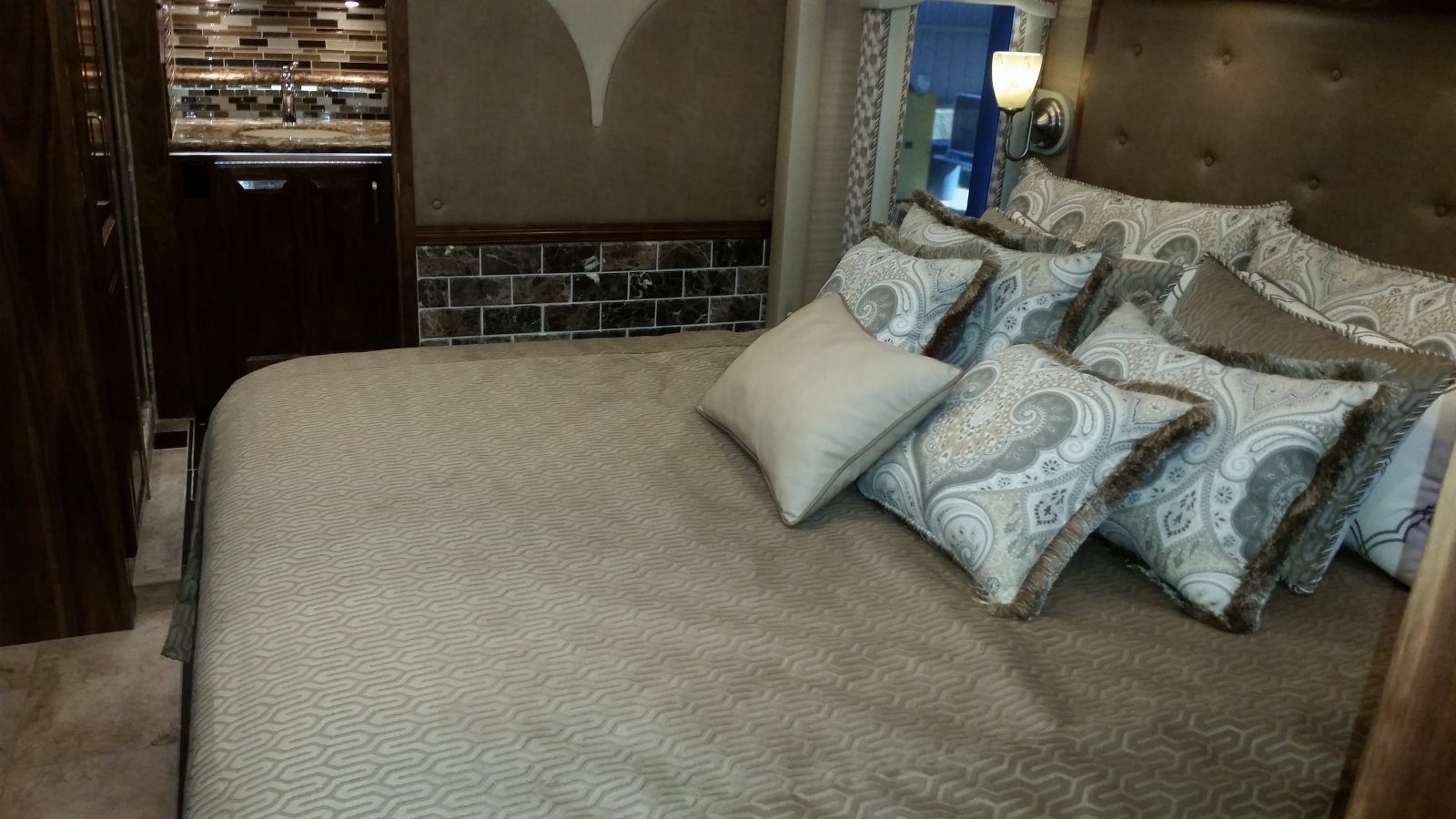Part of the attraction of RVing is getting away from it all and enjoying a little R & R (Rest and Relaxation), which includes a few naps along with nightly sleep. The following are six tips to help improve your sleeping experience while RVing.
1. Pick the right campsite
When choosing your campsite, consider what noises might keep you from sleeping. Is the campsite near a busy street or railroad tracks?
Consider places in the campground that are likely to generate sounds, like other campers making trips to the restroom in the middle of the night, playground equipment, dumpster lids being clanged shut, etc.

Do neighboring campers look like they are ready to party all night? The next consideration is overhead street lights and other light sources that are likely to shine into your rig at night. Finally, is there a creek or moving water that might serve as white noise to lull you to sleep?
2. Control the amount of light in your RV
Add blackout shades to bedroom windows, or if they are windows you seldom open for ventilation or viewing, consider blacking them out with insulated foil cut to fit in the opening. The insulation will help you control the temperature in the bedroom too.
Use RV vent insulators to eliminate light coming through your roof vents. These will also cut down on the amount of noise that enters through.
With all of today’s electronics and indicators, the inside of your RV might remind you of Christmas between the red, blue, and other festive light colors being emitted from your TV, monitor panel, water heater control switch, LP gas detector, refrigerator, etc. You may want to keep one or two glowing to serve as night lights, but consider turning off or blocking out the others from your view.
3. Find an alternative for the noisy furnace
RV forced air furnaces are noisy and quite often located near the sleeping area. Options for staying warm without the use of the furnace include oil-filled radiator heaters that have no moving parts, a ceramic heater, an electric blanket, or a heated mattress pad.
4. Stop the shaking
As RVs have become taller and longer, they have become more difficult to stabilize. If you wake in the middle of the night thinking you’re experiencing an earthquake when your spouse gets up to use the bathroom, consider getting some stabilizing jacks, finding better wheel chocks, or adding stabilizer kitsor slide-out supports.
When camping in windy areas, nose the RV into the wind to minimize the effect the wind has on the rig.
5. Have a comfy bed
Finally, you aren’t going to sleep well even in the quietest, stillest, or darkest places if you don’t have a comfortable bed to sleep on. Consider upgrading the mattress that came with your RV, or at least add a quality mattress topper.

While you are at it, spend a little extra for some flannel sheets for winter camping and some high fiber count sheets for summer campouts.
6. Be tired
Most of us RV to get out and explore nature. Lots of fresh air and exercise help assure a good night’s sleep. Make sure your daily adventures involve a hike, bike ride, or other physical activity. If nothing else, turn off the TV and take a walk around the RV park before you turn in for the evening.
Every great adventure in RVing should end with a great night’s sleep!
This information is for educational purposes. VIARV shall not be responsible nor retain liability for RVer’s use of the provided information. Prior to making any RV service decision, you are advised to consult with an RV professional.


Comments